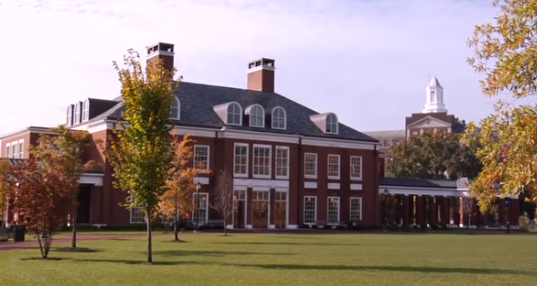Johns Hopkins caves to protesters, won’t renew contract to train ICE agents for medical emergencies

Johns Hopkins University, a private university located in Baltimore, Maryland, said it will not renew a contract with the U.S. Immigration and Customs Enforcement (ICE) agency. The medical school said it will no longer train federal immigration agents on how to respond to emergency medical situations.
University spokeswoman Kim Hoppe said that the medical school told ICE’s Office of Investigations weeks ago that it will not renew its contract. ICE’s Special Response Teams have been trained by Johns Hopkins’s medical school since 2004. Part of the statement said that the decision was made “[a]fter careful and deliberate consideration.”
Who is to blame for severing the longtime agreement? The student protesters who occupied Garland Hall in April 2018 by chaining themselves to the building for a month, disrupting students, faculty, administrators, and others who had to use the building.
Even the Baltimore Sun, the local city newspaper, reported that the students “aggressively called” for the severing of ties between ICE and the medical school. The protestors claimed that university administrators were “pretending to stand for progressive principles while reaping the rewards of dirty business.” The students also wanted the university to cancel its plans to create its own police force.
The Sun also reported that protesters walked out of class and chanted phrases such as “Caging children is horrific, JHU is complicit” and “JHU hears us shout, we won’t stop until ICE is out.” The newspaper claimed that the university made over $7 million thanks to 37 contracts with ICE since 2008. Three contracts combined netted $1.7 million for the university, but are set to expire this year. Those three contracts are for education programs dedicated to emergency medical training and leadership education. The university had also previously announced that it will not renew an expiring contract with ICE to train agents in the university’s Public Safety Leadership program.
It begs the question: Who will train the ICE agents on how to respond to medical emergencies? It also leads to another question: whether the protesters want migrants to receive the best medical care possible after being apprehended by ICE agents. If the protesters had the best interests of migrants in mind, they would encourage emergency medical training for ICE agents to prevent unnecessary or preventable deaths at the U.S.-Mexico border and at detention sites.
Johns Hopkins also fired a professor for breaking into the protester-occupied building to check on his computer servers and research, which illustrated which side the administration fears most: the active and loud student protesters.




